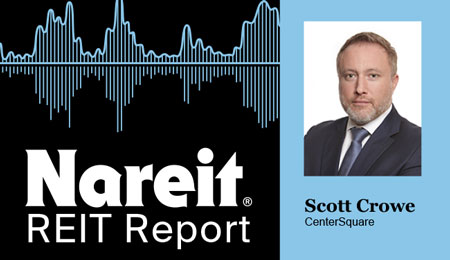 The REIT industry’s “heavy footprint” in non-traditional asset classes gives it a clear advantage as the world adapts to new ways of living in response to the coronavirus crisis, said Scott Crowe, chief investment strategist at CenterSquare Investment Management.
The REIT industry’s “heavy footprint” in non-traditional asset classes gives it a clear advantage as the world adapts to new ways of living in response to the coronavirus crisis, said Scott Crowe, chief investment strategist at CenterSquare Investment Management.
Speaking April 30 on the Nareit REIT Report podcast, Crowe said the crisis “ushers in a whole new paradigm of what real estate really is,” especially the idea of core versus non-core real estate. “The reality is that the way we live our lives is going to evolve significantly,” he noted.
One of the advantages that the REIT industry has is its “heavy footprint” in non-traditional asset classes, such as data centers and towers, Crowe said. He noted that the industry has “a much higher proportion of winners than losers as it relates to what the post-COVID-19 real estate new normal may look like.”
Crowe pointed out that a potential outcome of the crisis is a move from “the digital age to the virtual age,” which could possibly involve virtual reality headsets for meetings, sporting events, and doctor visits, among other things. “The amount of data you need to effectuate that is exponential,” he said.
Meanwhile, Crowe said he expects to see a reversal of the trend toward urbanization, with suburban markets looking more attractive. This in turn could spur demand for single family rental housing, he noted.